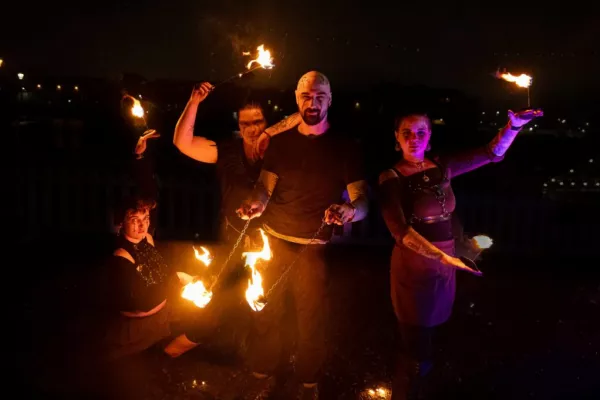A legislation outline for the extension of the opening hours of pubs and clubs has been agreed by the Cabinet.
Details
As reported by RTE.ie, if approved, the legislation would permit pubs to open between the hours of 10.30am and 12.30am, and nightclubs would be permitted to open until 6am.
If the Oireachtas passes the legislation, the changes are expected to be enacted in 2023, according to RTE.ie.
Support Package
Additionally, today (Tuesday 25 October) the Minister for Tourism, Culture, Arts, Gaeltacht, Sport and Media, Catherine Martin TD, welcomed the publication of the General Scheme of Sale of Alcohol Bill, which will reform and streamline licensing laws to support and stimulate the night-time economy.
Minister Martin has announced a support package for the night-time economy, to include nine new towns and cities in the new Night-Time Economy Advisor pilot/initiative. A commitment has also been given to progress the provision of soundproofing grants for venues, to help prepare for late opening.
Speaking at the announcement of the publication of the General Scheme of Sale of Alcohol Bill 2022, at the Royal Hibernian Academy (RHA), Minister Martin said, “Modernisation of our outdated licensing laws was one of the key recommendations of the Night-Time Economy Taskforce, which I established back in 2020. The publication of the General Scheme of the Sale of Alcohol Bill, agreed by government today, shows this government’s commitment to supporting a more diverse and vibrant night-time economy. Our outdated licensing laws were consistently raised as one of the key obstacles to change, innovation and creativity by those working in the night-time economy. I hope that everyone can get behind these changes, which will see a more streamlined, efficient and transparent system to licensing, more in step with a modern and diverse society, and will hopefully open up more opportunities in the cultural sector.”
The minister also took the opportunity to announce an additional package of supports, which can help businesses and communities adjust to any potential changes to licensing laws, as well as contribute to a more multilayered night-time economy. In this context, nine new pilot cities and towns have been selected by an independent review panel, led by the County and City Management Association (CCMA) and supported by the Department of Tourism, Culture, Arts, Gaeltacht, Sport and Media. The selected pilot locations are Dublin City, Cork City, Limerick City, Galway City, Kilkenny, Drogheda, Sligo, Buncrana and Longford Town. Six pilots were originally agreed by the Night-time Economy Taskforce, but Minister Martin approved funding for an additional three pilots.
Minister Martin said, “These new pilot towns and cities will now recruit new night-time economy advisors, who will help drive and support a more sustainable night-time economy in their specific areas. They will work with businesses, communities, venues, residents and artists to create a more vibrant night-life for all and bring vitality back to our city and town centres in a safe and sustainable way. I would like to thank the CCMA for their role in leading this process, and I look forward to getting the advisors in place and getting started.”
Ann-Marie Farrelly, chair of the CCMA Business, Enterprise, Innovation, Urban/Town Economic Renewal Committee, said, “The role of the night-time economy advisors in the nine pilot towns and cities will be central to the establishment of a thriving nightlife for our communities. They are key to delivering coordination at local level, to help support, drive and sustain a more vibrant and diverse night-time economy. The learnings from the nine pilots will then inform the approach to be taken in rolling out plans for the night-time economy across our cities and towns more generally.”
Minister Martin also committed to working with the sector and other relevant stakeholders to develop a grant process for soundproofing suitable venues. This will help to support the proposed liberalisation of opening hours for nightclubs and other venues operating in the night-time economy.
Minister Martin said, “We are currently examining different ways to approach this – the Berlin model being one approach – however, we will work closely with the sector and relevant experts to make sure we create a model that maximises the benefits for businesses and for surrounding communities. We are also engaging with the Department of the Environment, Climate and Communications and the Department of Housing, Local Government and Heritage on additional noise mitigation solutions.”
Martin added, “Six million euro [€6 million] has been allocated by my department to the night-time economy in this year’s Budget, which demonstrates our commitment to its development. We have made real and tangible progress on the actions in the report of the Night-Time Economy Taskforce [...] and are now beginning to see some changes. We will continue to work with the sector to build on this momentum.”









